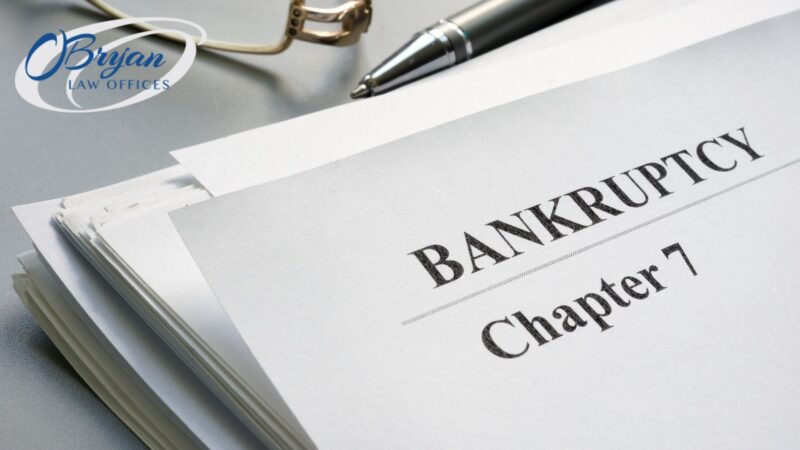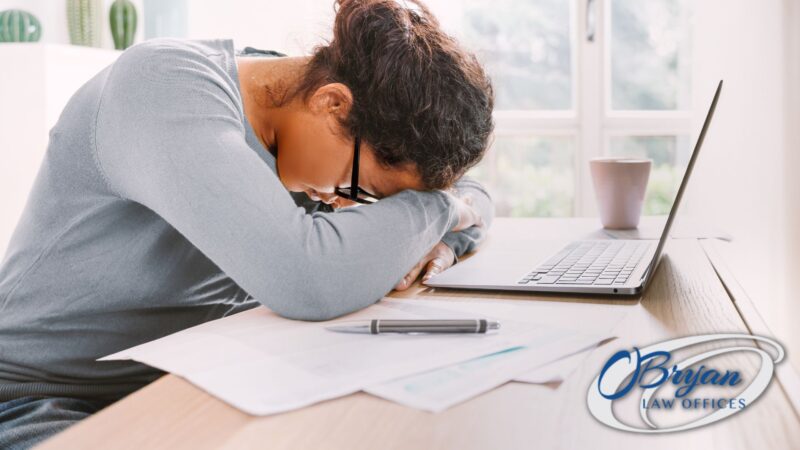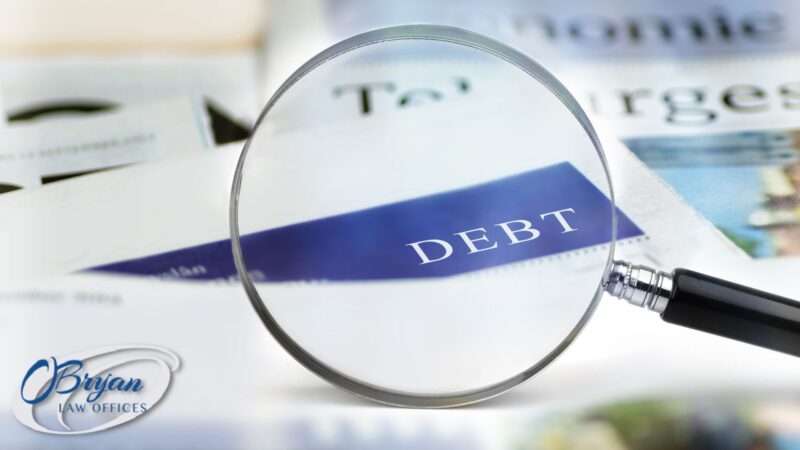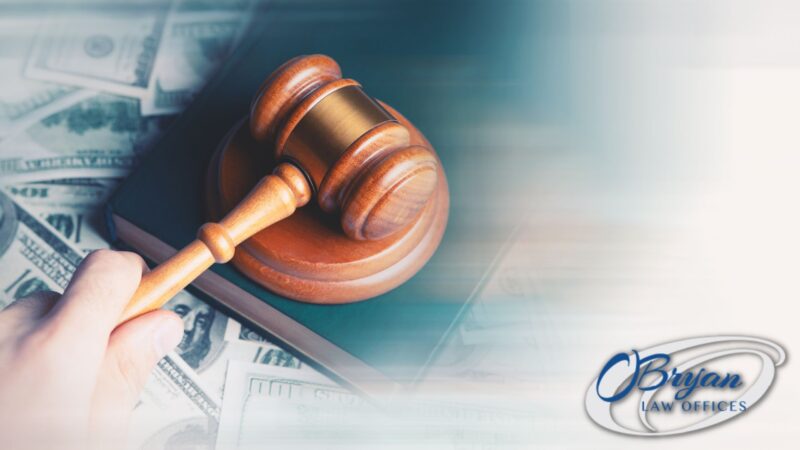Kentucky LLC Bankruptcy Lawyer

Home » Louisville Bankruptcy Attorney » Types of Bankruptcy » Kentucky LLC Bankruptcy Lawyer
LLC Bankruptcy Louisville Attorneys
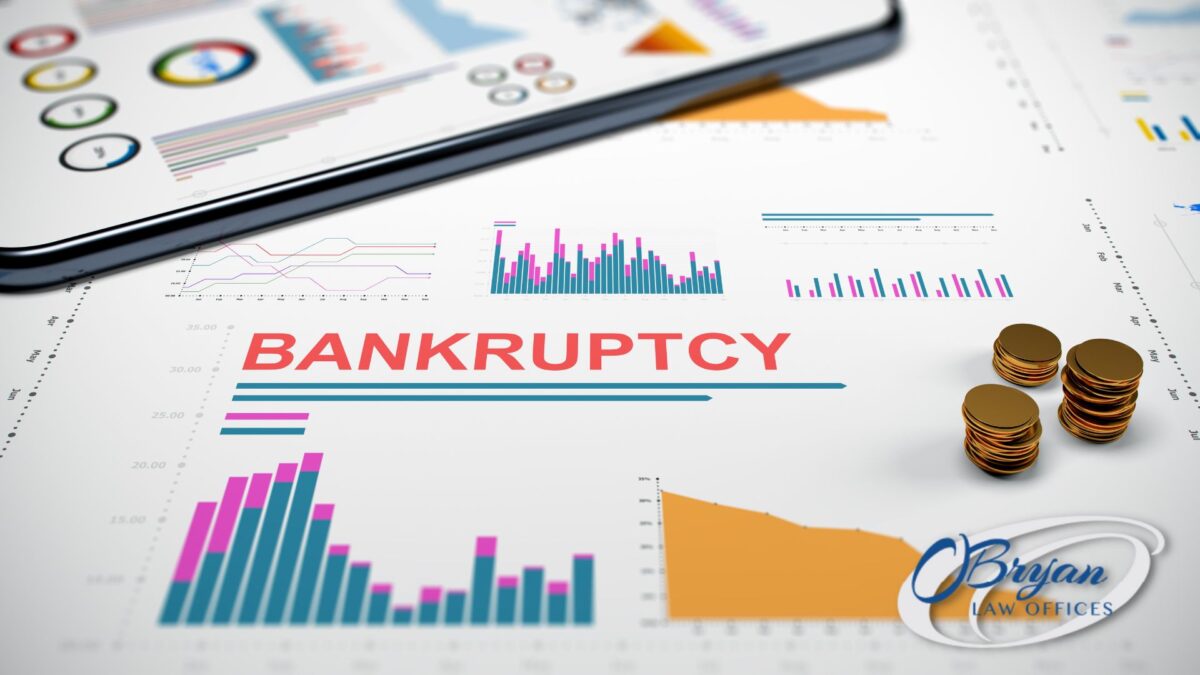
LLCs (limited liability companies) and corporations operate independently from their owners. This means that as its own individual entity, an LLC can incur debt and own property separate from the person who runs it. This is because business owners are protected on a personal level from the business’s liabilities, should it fail or incur increasing debt. It is also so that the business itself can be protected from its owner(s) liabilities.
Even so, some institutions like the Small Business Administration, or SBA, require LLCs to sign personal guarantees for any loans or debts they take on. This essentially renders the legal protections we just mentioned obsolete. In these cases, the guarantor or owner of the business becomes personally responsible for any debt incurred. Thus, they may need to file LLC bankruptcy if they lose grip of their financial situation.
As you can see, there are many working parts to an LLC bankruptcy claim. Many options are available to you as a business owner, but your lawyer should consider your unique circumstances to determine what option may be best for you.
What Is an LLC Bankruptcy?
When an LLC isn’t able to pay off its debts, the company has the option to file for bankruptcy. When limited liability companies file for bankruptcy, they can resolve any unpaid debts and eliminate the company assets, similar to when an individual files for bankruptcy. Most businesses choose between filing a Chapter 7 bankruptcy or a Chapter 11.
How Does Bankruptcy Work for LLCs?
Much like when a person files for bankruptcy, their assets are used to pay off their creditors. An LLC bankruptcy is no different. During an LLC bankruptcy, the company’s assets are sold, and the profits are used to pay its debts. When an LLC files for bankruptcy, its members are usually not held responsible for any of the debts. The only exception is if the member signed any personal guarantees that made them responsible for any business debts.
When an LLC begins, certain entities like creditors or banks may request personal guarantees since the business has limited assets. If this is the case, it’s recommended that you file a personal bankruptcy to absolve yourself from those financial responsibilities. Filing a business bankruptcy as an LLC is often the best way to escape any financial hardships the business may have encountered. Under some circumstances, you may need to file both a business bankruptcy and a personal bankruptcy.
Filing personal bankruptcy is overwhelming enough, but it can be even more challenging when you want to get your LLC out of debt. If you’re unsure about which route you need to take for filing a bankruptcy for your LLC, the Louisville bankruptcy attorneys at the O’Bryan Law Offices are available to answer any questions you may have. To discuss your bankruptcy options with one of our attorneys, schedule a free consultation by calling 502-400-4020 today.
Should I File Chapter 7 or Chapter 11 for My LLC?
When an LLC has reached the point with their debts that they’re considering filing for bankruptcy, they generally have two options – file a Chapter 7 or Chapter 11 bankruptcy. Chapter 7 is a common form of bankruptcy that many individuals can also choose to file, but Chapter 11 is generally only filed by businesses.
Chapter 7 Bankruptcy
Chapter 7 bankruptcy is known as the “liquidation” bankruptcy. When an LLC files a business bankruptcy Chapter 7, the process is similar to when an individual files. During this bankruptcy, the LLC’s assets are liquidated and used to pay off their secured debts first. Then, whatever is left over will go towards unsecured debts. Secured debts are any debts that the business owes to a financial institution to have “secured” an asset. For example, a business may take out a loan to purchase a piece of equipment or for a space to operate its business.
The bankruptcy court will appoint a trustee to oversee the process and to ensure that the secured debts take priority over the unsecured debts. Once the secured debts have been paid off, the unsecured debts are paid with any remaining assets. When the assets have been depleted, the bankruptcy and debts will be discharged.
When businesses file a Chapter 7 bankruptcy, they lose control over their business. The court-appointed trustee will evaluate the LLC and its assets to determine if selling those assets can pay off their debts or if the business will need to be sold completely. There is an upside to selling your business when you file for bankruptcy.
Not only is it the court-appointed trustee’s decision to sell the business, but it offers much more transparency. Leaving a business open can raise questions with some creditors and sometimes lead to them pursuing legal action. Shutting down your business to pay off debts can show creditors you have nothing to hide.
Chapter 11 Bankruptcy
A Chapter 11 bankruptcy is somewhat similar to the Chapter 13 that individuals can file in that it doesn’t completely liquidate your assets to pay off your debts, but instead reorganizes the debt. This type of bankruptcy is typically only filed by businesses because it’s extremely complex and expensive.
Once the LLC files for bankruptcy, the business owner can remain in business by restructuring their debts while under the bankruptcy court’s supervision. With the help of its bankruptcy trustee, the business can renegotiate its debts owed to creditors. The trustee will also oversee the restructuring of the business’s finances to improve their financial situation.
During Chapter 11, the business may cut back on some expenses and sell certain assets to try and begin paying off its debt. Since the LLC remains in business during Chapter 11, they continue paying on their debts with their earnings. If the Chapter 11 bankruptcy is successful, it can remain open while paying off its debts.
While filing a Chapter 11 may seem like the better option since your LLC can remain in operation, there are many downsides to going with this bankruptcy. When businesses file for bankruptcy, they’re already in a dire financial situation, and a Chapter 11 is much more expensive to file than a Chapter 7. Even though your business can stay open, filing a bankruptcy can hurt your future earnings by making customers weary of continuing business with you.
Before you file bankruptcy for your LLC, consider the pros and cons of each type of filing. The idea of closing down a business that you’ve put so much time into can be challenging to face. However, a Chapter 11 bankruptcy can worsen your finances due to the expensive filing costs and potentially ruin your business’ reputation.
Chapter 11 bankruptcy filing is usually reserved for large companies, like Apple, since the cost to file is over $1,000, and that’s before you factor in legal fees. It’s extremely difficult for a small or medium-sized business to continue operating while paying off creditors. In fact, only 10% to 15% of Chapter 11 filings are successful. Many businesses that start off filing a Chapter 11 will switch over to a Chapter 7 filing since they’re unable to profit after the reorganization.
Switching over to a Chapter 7 bankruptcy isn’t all bad, though. Chapter 7 bankruptcies have a high success rate. A study conducted by the American Bankruptcy Institute found that of the filings observed, 100% received bankruptcy protection, and 99% were discharged. If you’re looking to get your LLC out of debt and start over, you definitely want to consider a Chapter 7 filing.
If you’re still unsure of which bankruptcy option to pursue when filing for your LLC, the business bankruptcy attorneys at O’Bryan Law Offices can help.
What Are the Risks of Closing an LLC with Chapter 7 Bankruptcy?
When filing a Chapter 7 bankruptcy for an LLC, the managing member or corporate officer is responsible for liquidating the company’s assets, with the trustee’s help, to pay off creditors. Documentation for the closing of an LLC must be filed with the secretary of state, or those with ownership percentages could be held liable. Filing with the secretary of state is also important so that no liquidated assets are used to pay business partners or other stakeholders.
Hiring a business bankruptcy attorney is important when filing for your LLC. They can help ensure you’ve taken the proper steps to file with the secretary of state. Any mistakes when filing the dissolution of the LLC can result in fines and taxes. Unless the LLC is legally dissolved, it continues to exist according to the state. The formal dissolution of the LLC will also notify creditors that the business has closed and is no longer able to acquire debt.
If I File Personal Bankruptcy, What Happens to My LLC?
As an owner of an LLC, you are likely faced with both personal and business debt. From here, you have a couple of options available to you. When faced with these options, you must consider many factors to determine which route is best.
The first thing that must be considered is whether you are the majority business owner or in a partnership. If you file personal bankruptcy as the sole or majority owner of your LLC, your bankruptcy trustee may vote to either sell the business or liquidate it and distribute any proceeds to your creditors.
Your bankruptcy advisor will take a cost/benefit approach to determine whether it would be the best option to liquidate your business. When a business fails, your lawyer will review how much it would cost to dissolve and liquidate the assets, what they could sell for, and whether any of them are exempt from being sold.
In many cases, when little is left in terms of value to be gained by liquidating the company’s assets, liquidation just doesn’t make the most financial sense. However, if the business in debt has valuable, nonexempt assets that can be dissolved and sold, your lawyer will most likely advise this route.
On the other hand, if you are a partner of an LLC, a personal bankruptcy claim won’t always affect your business. Unless you are the majority shareholder, your trustee likely won’t pursue a dissolution of the corporation. It is also possible that in a partnership, you will need to sign a buy-sell agreement that requires you to relinquish your ownership interest before filing for personal bankruptcy. Failure to adhere to this agreement could result in a lawsuit against you from your LLC’s co-owners.
Can I Still Operate My LLC or Corporation After I File for Bankruptcy?
If the bankruptcy trustee determines that the only way to pay off the LLC’s debts is to liquidate the business, you cannot continue operations. However, some circumstances can allow for an LLC to continue operating during a Chapter 7 bankruptcy. The trustee may determine that liquidating assets can cover the debts and keep the business open.
Depending on how your limited liability company is structured could also help you remain in business during a bankruptcy. Those that are the sole proprietor of the business are more likely to keep their business operations than those that operate as a separate legal entity. Sole proprietorship businesses that are service oriented, like a small accounting firm, are more likely to remain in business than those that are product oriented. Product-oriented companies rely on those products to conduct business. If the trustee liquidates those, they have nothing to keep them open.
What Happens if a Corporation Goes Bankrupt?
Two types of proceedings are available for corporate bankruptcy: Chapter 7 and Chapter 11. Chapter 7 liquidates the assets, while Chapter 11 essentially reorganizes the business and allows it to continue operation.
Corporations, limited liability companies, partnerships, and sole proprietorships can file for Chapter 7. However, it’s mostly a tool used by sole proprietors because once they pay their creditors, they will receive a discharge. Receiving a discharge means that the sole proprietor would no longer be liable for the repayment of business debts, even if they signed a personal guarantee.
Meanwhile, corporations, LLCs, and partnerships cannot receive a discharge like a sole proprietor could because each partner is a separate legal entity. In this case, if you’ve signed a personal guarantee, creditors may still come after your personal assets to try and satisfy your debt.
Chapter 11 bankruptcy allows a company to continue business operations while reorganizing debt. This is generally the best option when the company is not entirely underwater and can still be turned into a viable, money-generating business with some additional help.
A Chapter 11 business bankruptcy filing is a good option for companies with regular revenues but struggling to repay their debts. Should you choose this option, the court must review and approve your reorganization plan before it goes into effect and helps repay debts.
Chapter 11 also leaves room to negotiate with creditors. For example, the court may allow you to spread out the payments over 20 years instead of a typical five-year repayment plan. The goal of Chapter 11 bankruptcy is to provide businesses with the opportunity and resources to get them back on their feet.
Can an LLC File Chapter 7?
If over half of the owner of an LLC’s debt is business debt, they may file for Chapter 7 bankruptcy. Chapter 7 bankruptcy uses liquidation to pay off debt to creditors. From a business sense, the business will need to close, and all of its assets will be liquidated. The proceeds from this liquidation of assets will go straight to the business’s creditors.
Through Chapter 7, none of the business’s property is exempt from liquidation, and it does not receive a discharge of debts. This doesn’t mean the debt doesn’t exist, though. The unpaid debt is still there, but the business simply no longer exists to pay it. If any personal guarantees to a business lender remain, the lender may pursue the guarantor to pay off the remaining business debt. However, if no personal guarantees exist, the debt seemingly evaporates.
An LLC may choose to file Chapter 7 to establish that the business is officially dissolved. If your business has aggressive, unrelenting creditors, this chapter of bankruptcy can offer protection by asserting that the liquidation process will be conducted by an independent third party. This makes Chapter 7 a good option for those who are constantly pressured and harassed by creditors.
However, there are some instances where filing for Chapter 7 bankruptcy is not even necessary for an LLC. For example, if the business in question has little to no assets left to liquidate, Chapter 7 won’t really get them anywhere. With no other parties liable to pay the debt and no assets to levy, creditors generally won’t waste their time pursuing a claim against the guarantor. In addition, there may be no point in filing Chapter 7 if there is an overriding lien on all of their business assets by a financial institution.
Can I Keep My Business if I File Chapter 13?
Chapter 13 bankruptcy differs from Chapter 7 and Chapter 11 in that it is reserved only for individuals filing for bankruptcy. Corporations, partnerships, and LLCs cannot do so. However, if a sole proprietor owns the business, that individual can file for Chapter 13 bankruptcy for personal and business debt reorganization. This means that through Chapter 13, the owner of a business or LLC may file to eliminate their liability for business debts. The business itself is still responsible for paying back its own business debts, but all personal liability will be discharged.
Chapter 13 can protect all of your business assets while you work to pay back all or a portion of your debts through a restructured payment plan. Sometimes, reorganizing an individual’s personal debt may be enough to keep their business afloat. So yes, it is possible to keep your business running when you file for Chapter 13 bankruptcy.
How to File Corporate Bankruptcy
There is a distinct difference between filing for bankruptcy as an individual versus filing as a corporation, partnership, or LLC. Experienced Kentucky bankruptcy attorneys like those at O’Bryan Law Offices can represent both individuals and business entities in bankruptcy claims. We will assist you throughout the entire legal process from beginning to end.
At our family-owned bankruptcy law firm, we work hard to find ways to keep your company in business through a comprehensive debt repayment plan. In other situations, however, we can show you that the business entity is not worth saving, and we’ll concentrate on minimizing your exposure to personal liability. Where the distinction between business and personal assets has been reasonably well-preserved, it might make sense to file separate bankruptcy cases for the business and the individual.
How to Determine the Best Option for Your Situation
Before filing for bankruptcy for your business or LLC, discuss the options with an experienced business bankruptcy attorney. The attorneys at the O’Bryan Law Offices have 40 years of combined experience helping Louisville residents and business owners file bankruptcies. We understand how much work and money goes into a business and know that making the decision to file bankruptcy isn’t easy. Our hope is to help you continue operating your business while you pay off your debts. There are many pros and cons to filing a Chapter 7 versus a Chapter 11. Still, our bankruptcy attorneys can help you decide which option is best for you and your business so that you can begin your journey toward financial stability and freedom.
Contact an LLC Bankruptcy Lawyer at O’Bryan Law Offices Today
If you are a business owner and you’re considering filing bankruptcy for yourself, your LLC, or both, the process will surely be complicated. Many moving parts must be considered when it comes to the relationship between your own personal finances and your business’s. It is important that you are made aware of all your options and that you choose the best one for your specific situation. For dependable advice about LLC bankruptcy, contact one of our knowledgeable attorneys at O’Bryan Law Offices for a free consultation today.

